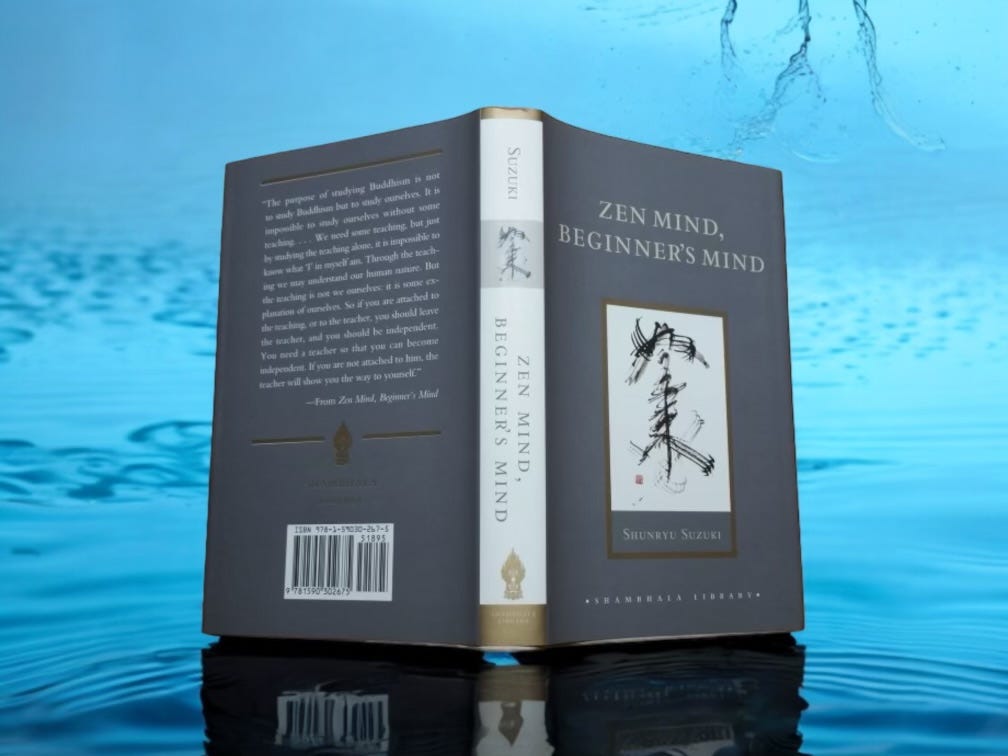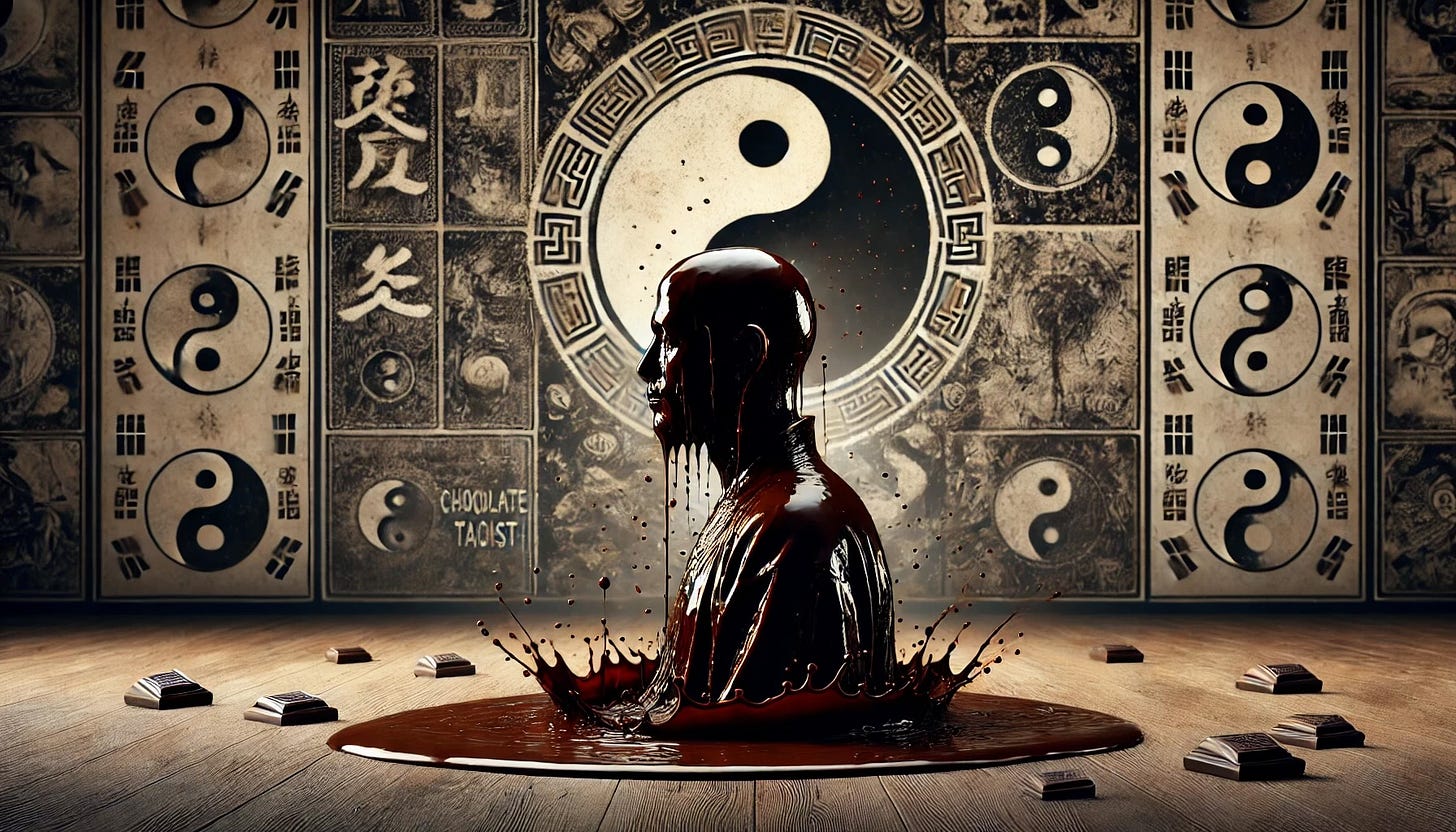“I live in completeness. All of us do, though we may not realize it. I don’t know anything; I don’t have to figure anything out. I gave up forty-three years of thinking that went nowhere, and now I exist as a don’t-know mind. This leaves nothing but peace and joy in my life. It’s the absolute fulfillment of watching everything unfold in front of me as me."
Byron Katie, A Thousand Names for Joy
The moment I stumbled upon this quote, I felt a curious mix of unease and liberation……
Unease because the idea of not having to figure anything out flew in the face of a lifetime of cerebral overthinking.
Liberation because, for the first time, I could imagine the immense freedom in just being, without the mental gymnastics of perpetual problem-solving.
In the Western world, we're often conditioned to equate knowing with security. From childhood, we're taught to gather information, solve problems, and seek answers. This incessant pursuit of knowledge can lead to the belief that we are perpetually lacking, always one piece of information away from completeness.
However, the Zen concept of beginner’s mind challenges this notion. It invites us to approach each moment with openness, curiosity, and a willingness to embrace the unknown.
This shift in perspective has been anything but comfortable. Letting go of the need to have all the answers felt like stepping off a cliff without knowing if there was solid ground below. Yet, paradoxically, the very act of letting is where I found true freedom.
From a Taoist standpoint, the discomfort of letting go is a necessary precursor to discovering our inherent completeness. Taoism teaches that the universe is infinitely abundant, and we are part of this boundless whole.
The idea of lack is a mental construct, an illusion created by the mind's endless quest for more. By embracing the emptiness—the “don’t-know mind”—we align ourselves with the natural flow of the Tao, the underlying principle that governs all life.
The concept of emptiness in Eastern philosophy is often misunderstood in the West. It’s not about void or nothingness in a nihilistic sense, but about creating space within ourselves to experience life fully.
In Taoist practice, this emptiness is akin to a fertile void, brimming with potential and possibility. When we stop trying to figure everything out, we make room for new insights, creativity, and the spontaneous unfolding of life.
Think about it: how many times have we tried to force solutions, only to find that the real answers emerged when we least expected them?
I know I have.
It's like trying to remember a word that’s on the tip of your tongue—the harder you try, the more elusive it becomes. But the moment you stop thinking about it, there it is, popping effortlessly into your mind.
Similarly, I've found that the less I strive to control and understand everything, the more naturally things fall into place. This doesn’t mean abandoning all effort or retreating into passivity. Instead, it’s about recognizing the limits of our intellect and trusting in the larger machinations of the universe.
Reading and thinking, while valuable, can often become exercises in futility if we cling to them as the ultimate sources of wisdom. The more we consume information, the more we realize how little we truly know.
The Zen and Taoist masters knew this well. They taught that real wisdom arises not from accumulation but from subtraction—from letting go of preconceived notions and being open to the present moment.
In my journey to embrace a beginner's mind, I've had to confront the discomfort of not having all the answers. This means surrendering the illusion of control and accepting that uncertainty is an intrinsic part of life.
It's a humbling process, but also profoundly liberating. As Byron Katie suggests, existing as a “don’t-know mind” fills life with peace and joy. It’s the ultimate freedom—living in completeness without the need for constant mental chatter.
We are not lack. Instead, we are part of an infinite, interconnected whole. When we stop trying to figure everything out, we begin to see the beauty and harmony that have been there all along.
By embracing a beginner's mind, we open ourselves to the richness of each moment, discovering that we have everything we need in this boundless, ever-unfolding universe.
The Chocolate Taoist ™ is a reader-supported publication. To receive new posts and support the world of independent writing, please consider becoming a free or paid supporter.






“In the beginner's mind there are many possibilities, but in the expert's there are few.”
- Shunryu Suzuki Roshi
Amen, brother! I penned some similar thoughts, with the subtitle "Knowing You Don't Know" and the title of the post is "Stepping Into The Unknown." Every day we begin, not again, but rather anew. Freedom is discovering that the more we let go, the more we have. This follows the precept that Less is more. Less stuff, more time. Less sorrow, more joy. Less work, more play. Less worry, more freedom. Choose wisely, carefully, lovingly. And thanks for helping to begin another day.